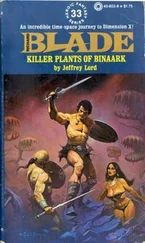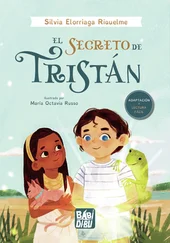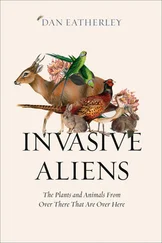Unai Elorriaga - Plants Don't Drink Coffee
Здесь есть возможность читать онлайн «Unai Elorriaga - Plants Don't Drink Coffee» весь текст электронной книги совершенно бесплатно (целиком полную версию без сокращений). В некоторых случаях можно слушать аудио, скачать через торрент в формате fb2 и присутствует краткое содержание. Год выпуска: 2009, Издательство: Archipelago Books, Жанр: Современная проза, на английском языке. Описание произведения, (предисловие) а так же отзывы посетителей доступны на портале библиотеки ЛибКат.
- Название:Plants Don't Drink Coffee
- Автор:
- Издательство:Archipelago Books
- Жанр:
- Год:2009
- ISBN:нет данных
- Рейтинг книги:4 / 5. Голосов: 1
-
Избранное:Добавить в избранное
- Отзывы:
-
Ваша оценка:
- 80
- 1
- 2
- 3
- 4
- 5
Plants Don't Drink Coffee: краткое содержание, описание и аннотация
Предлагаем к чтению аннотацию, описание, краткое содержание или предисловие (зависит от того, что написал сам автор книги «Plants Don't Drink Coffee»). Если вы не нашли необходимую информацию о книге — напишите в комментариях, мы постараемся отыскать её.
Plants Don't Drink Coffee
Vredaman
Unai Elorriaga
A Streetcar to SP Amaia Gabantxo
TheTimes Literary Supplement
The Independent
An Anthology of Basque Short Stories
Spain: A Traveler’s Literary Companion
Perfect Happiness
Plants Don't Drink Coffee — читать онлайн бесплатно полную книгу (весь текст) целиком
Ниже представлен текст книги, разбитый по страницам. Система сохранения места последней прочитанной страницы, позволяет с удобством читать онлайн бесплатно книгу «Plants Don't Drink Coffee», без необходимости каждый раз заново искать на чём Вы остановились. Поставьте закладку, и сможете в любой момент перейти на страницу, на которой закончили чтение.
Интервал:
Закладка:
And Aitite Julian continued working on the door, and engraving things in the corners, most of them in Latin. And he engraved two words exactly in the center of the door, in big letters, so they could be seen from quite a distance. The words were: TOIDI ADNAS. And on the day of the inauguration, the town mayor, Jose Antonio Sanda, Little Sanda, asked Aitite Julian what those two words meant. And Aitite Julian explained that it was a saying in an Indian language that was used as a form of thanks to mandataries. That it was used to say thanks to people who were good at governing, and that he’d thought it appropriate for the Town Hall door. Jose Antonio Sanda, Little Sanda, agreed with him.
Sanda was at the Town Hall for many years, said Martina; at least twenty. And they say he was more proud of that door than he was of his own family, and he visualized the whole town clapping at him every time he passed through it. But the truth was that “Toidi Adnas” was not a saying in any Indian language; there was nothing exotic about “Toidi Adnas,” anyone could read it back to front or with a mirror and know what it said. A mirror showed that TOIDI ADNAS WAS SANDA IDIOT. Aitite Julian did that to Little Sanda: he called him an idiot. And to his face too. And Jose Antonio Sanda was the son of a Count, said his mom, Martina. Little Sanda. His father, the Count, had made him town mayor. Martina suddenly remembered that Jose Antonio Sanda had a ridiculous moustache.
We only heard about it afterwards, said Martina, because we were children at the time. An aunt told us the story about the inscription on the door. Much later. She told us, too, that Aitite Julian had already thought of engraving those words on the door, even before the mayor told him he wouldn’t get paid. Toidi Adnas. But after receiving Sanda’s letter he made the letters four centimeters taller and used darker wood on them, so they would stand out more. An aunt told us the whole story. But I haven’t heard the other stories you mention, about the armoire with the rosary and the competition. I haven’t heard them. Aunt Rosa might know. Ask her. His mom, Martina, said Aunt Rosa would arrive later in the evening, and to ask her, because she might know. She said Aunt Rosa was going to come around to bring some mackerel later in the evening and to ask her.
And so Mateo was waiting for Aunt Rosa. That’s why he was sitting on the sofa next to his cousin Tomas. That’s why he fell asleep.
Aunt Martina told us a story today. About Aitite Julian. Normally Uncle Simon tells the stories. Uncle Abel too. Uncle Simon will say: “I have a good one for you,” and he starts laughing before he says anything. But today it was Aunt Martina. She said Aitite Julian made a door for the town mayor, a big one, and in the middle of it he wrote the mayor was an idiot. And those words couldn’t be erased, like you can erase something you write with a pencil or on the blackboard, because the letters were made of wood and were engraved, and to erase them they would have to break the door down. But the mayor didn’t realize Aitite Julian had written that. He didn’t realize because the words were back to front and because he was really a bit of an idiot; everybody noticed and he didn’t.
A mayor is someone with a moustache who is kind of a boss. But there are other people who are bigger bosses than mayors. Presidents are bigger bosses than mayors. Ministers too. I don’t know if Colonels are bigger bosses than mayors really. Colonels in movies are very big bosses. Generals too. The Sioux and the Apache Indians don’t have Colonels. The Sioux have Chiefs, and nothing else. But I don’t know who are the bigger bosses, the Sioux Chiefs or mayors. I think they are similar. Sioux Chiefs don’t have moustaches.
At quarter past seven Tomas’ mom arrived in Maloena from the hospital. She didn’t look good. Her sister Martina asked her “How’s Erroman?” and she answered “Not well.” Tomas understood that his dad was better, but not completely recovered yet. Martina, on the other hand, understood that Erroman was much worse and there was no remedy for what he had. Mateo woke up just then, when Tomas’ mom arrived. Tomas’ mom had a bag in her hand, a plastic one.
Aunt Rosa arrived in Maloena at quarter past eight. She brought seven mackerel: she gave two to Tomas’ mom and Martina put the other five away. Mateo was dying to ask Aunt Rosa some questions about Aitite Julian, but he felt he ought to wait until Tomas’ mom went home, that it would be better that way, that the atmosphere wasn’t right to start asking questions. As he thought this, the three women were talking about illnesses — about migraines to be precise.
When Tomas’ mom left, Mateo felt free to talk to Aunt Rosa. And he asked her if she knew anything about Aitite Julian’s competition. And he asked her if she knew anything about the armoire with the rosary engraved on it, and whether the woman from Sarri ever realized there were sixteen mysteries on her armoire instead of fifteen. Aunt Rosa responded she didn’t know about the competition, she had never heard anything about it. But she could answer the other question; she knew the story of the armoire well, and she’d be glad to tell him about it. And Mateo said yes please, go on, and asked her to tell the story. And Aunt Rosa told the story of the woman from Sarri, the armoire, the rosary, and everything right to the very end. Finally. And she told it like this, and she was concise like a cable message:
“I don’t know anything about that competition. Maybe that happened before I was born. Or when we were very small. I am old and I have no recollection of that. I knew he was a good carpenter, but I never heard about a competition. Someone must have made it up. People make everything up. I never heard about it at home. The other story, yes. About the armoire and the rosary, yes. They talked about that a lot at home when we were children. Maybe Martina can’t remember, because she was younger than me, but I do. The story of the rosary was a big thing at home. The story of the rosary was
10
very peculiar. That armoire you talk about, with a rosary, the one Aitite Julian made for Doña Beatriz. She used to live there, that woman, in Sarri. Aitite Julian made lots of things for Sarri. There used to be a lot of money in Sarri. And that’s what Doña Beatriz asked for, a glass-fronted armoire, with the whole rosary engraved on it, with all the mysteries. She wanted him to engrave five mysteries on one door, another five on another door, and another five on the last door. She wanted a glass-fronted armoire, with three doors. That’s what she asked for. Doña Beatriz was quite proud, and she smoked a lot. That’s why she made that order, because she wanted to pray at home, looking at her wardrobe. People from Sarri were like that back then.”
“And Aitite engraved sixteen mysteries,” Mateo. He couldn’t hold back.
“Sixteen. He made one mystery up. Five, five and six. He made one mystery up and engraved it on the last door. And Doña Beatriz was a very popular woman. In the town. And all over the province. She was very popular with the priests, Doña Beatriz. And what did Aitite Julian do? Engrave an extra mystery into her armoire.”
“And did Doña Beatriz ever realize? Did she?” Mateo. Mateo wanted to hear the end of the story.
And Aunt Rosa told him the end of the story. He told her that, no, Doña Beatriz didn’t realize. Nor she did, she realized, but four years after Aitite Julian made the armoire. What happened was, there used to be lots of priests at Doña Beatriz’s house, even bishops, and she would show the armoire with the rosary to all of them, and they all told her the armoire was beautiful, and the rosary was beautiful, and the armoire was a reflection of heaven, and Doña Beatriz herself another one. But once she showed the armoire to Don Juan, the parish priest; do you remember Don Juan, Martina? He’s hard as nails and tougher than rope. He is still alive, Don Juan. . and Don Juan told her he didn’t see the rosary in her armoire, but the devil instead. He told her there was one mystery too many and asked what sort of a sacrilege that was. Aunt Rosa said Don Juan even shouted at Doña Beatriz. Don Juan asked her what sort of prayers she said, given that he usually didn’t notice such important things. He asked her if she never counted the mysteries, and what sort of pagan praying she practiced, and what on earth did she look at when she prayed. And Doña Beatriz was embarrassed from her toes to the crown of her head, because she’d had the armoire four years, and not two or three weeks, and she couldn’t very well complain to Aitite Julian now, what would she complain about, when four years had passed and the whole thing was so embarrassing for Doña Beatriz, how could she complain to him, after having prayed to her armoire so much?
Читать дальшеИнтервал:
Закладка:
Похожие книги на «Plants Don't Drink Coffee»
Представляем Вашему вниманию похожие книги на «Plants Don't Drink Coffee» списком для выбора. Мы отобрали схожую по названию и смыслу литературу в надежде предоставить читателям больше вариантов отыскать новые, интересные, ещё непрочитанные произведения.
Обсуждение, отзывы о книге «Plants Don't Drink Coffee» и просто собственные мнения читателей. Оставьте ваши комментарии, напишите, что Вы думаете о произведении, его смысле или главных героях. Укажите что конкретно понравилось, а что нет, и почему Вы так считаете.












